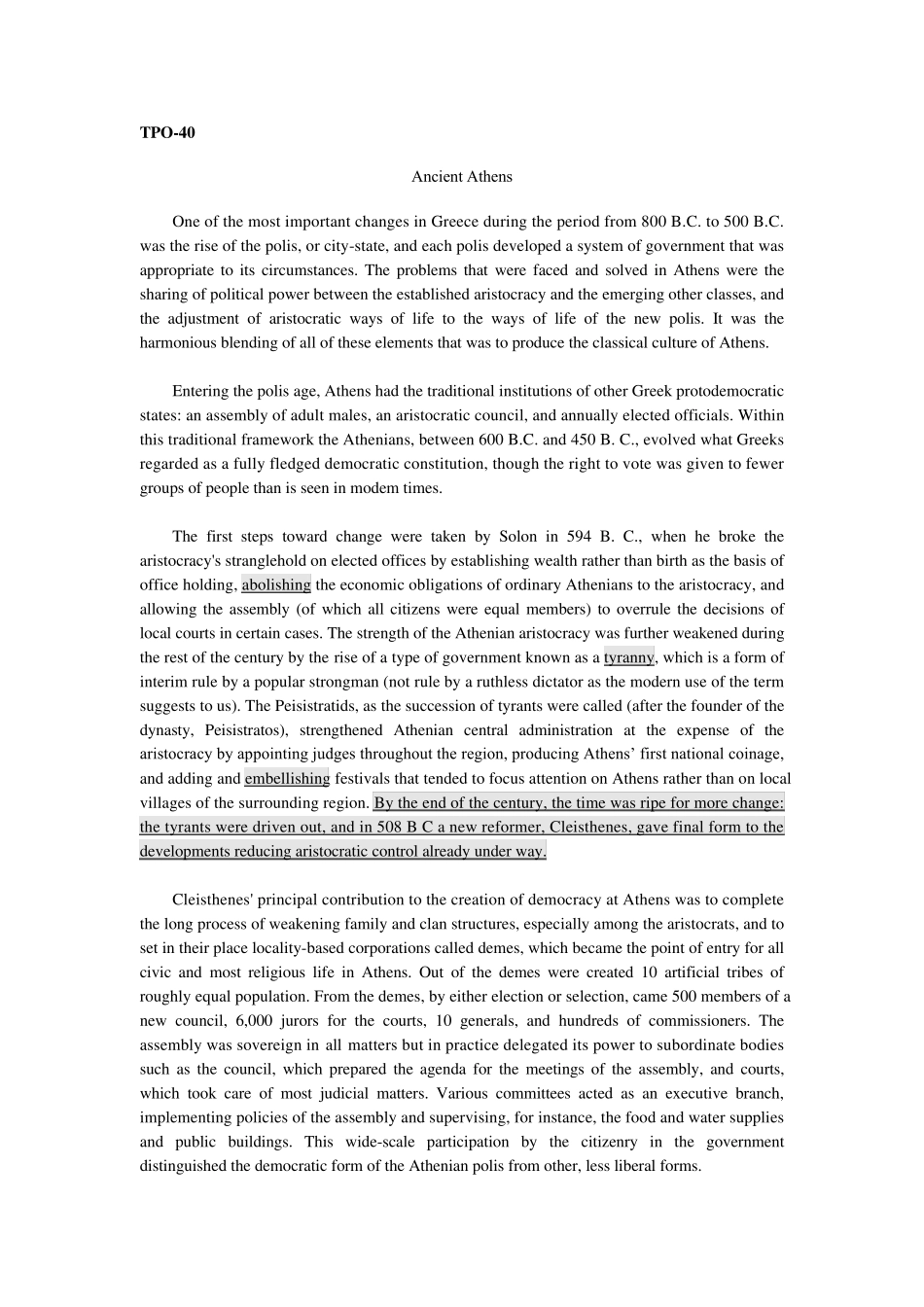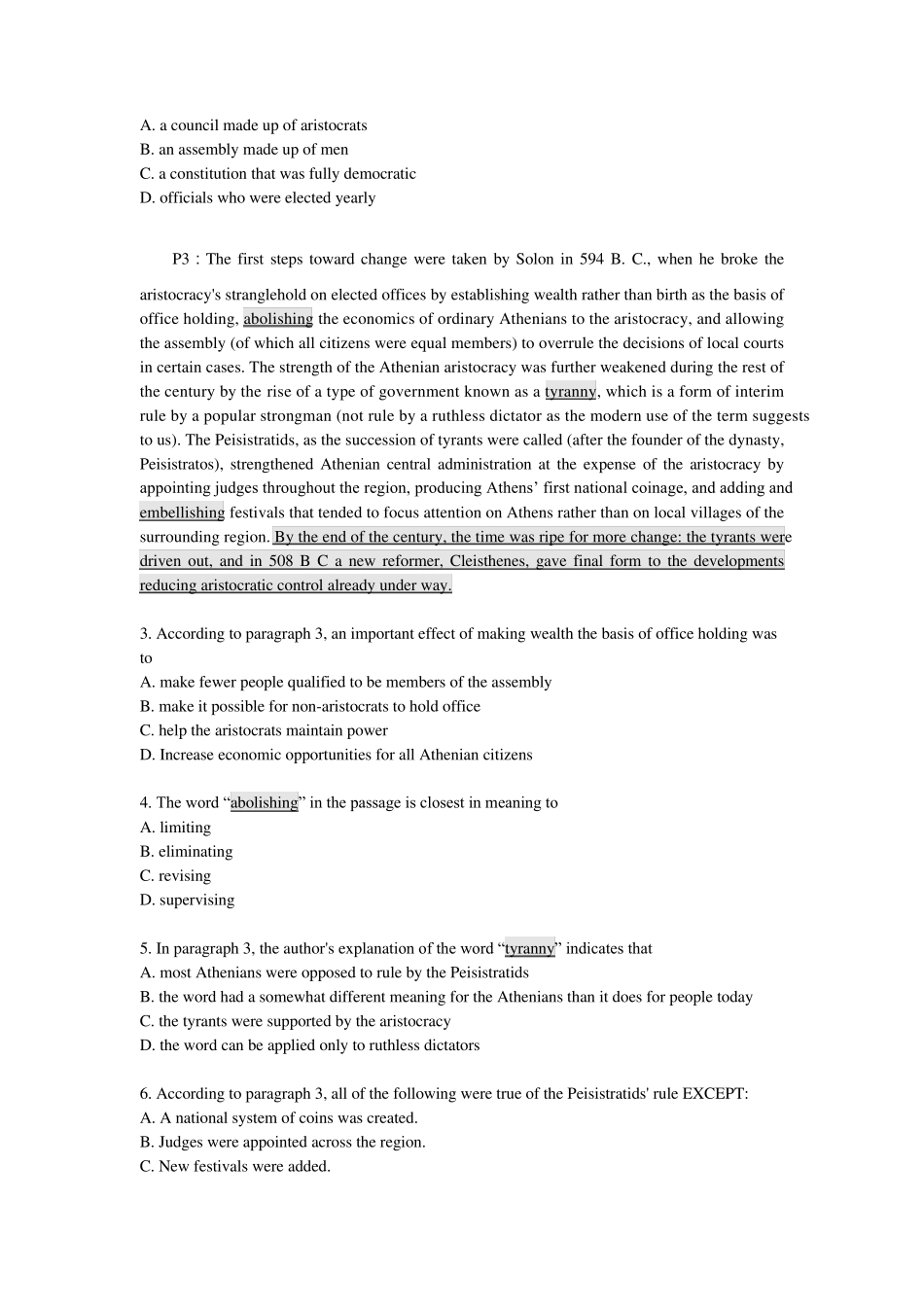TPO-40 Ancient Athens One of the most important changes in Greece during the period from 800 B.C. to 500 B.C. was the rise of the polis, or city-state, and each polis developed a system of government that was appropriate to its circumstances. The problems that were faced and solved in Athens were the sharing of political power between the established aristocracy and the emerging other classes, and the adjustment of aristocratic ways of life to the ways of life of the new polis. It was the harmonious blending of all of these elements that was to produce the classical culture of Athens. Entering the polis age, Athens had the traditional institutions of other Greek protodemocratic states: an assembly of adult males, an aristocratic council, and annually elected officials. Within this traditional framework the Athenians, between 600 B.C. and 450 B. C., evolved what Greeks regarded as a fully fledged democratic constitution, though the right to vote was given to fewer groups of people than is seen in modem times. The first steps toward change were taken by Solon in 594 B. C., when he broke the aristocracy's stranglehold on elected offices by establishing wealth rather than birth as the basis of office holding, abolishing the economic obligations of ordinary Athenians to the aristocracy, and allowing the assembly (of which all citizens were equal members) to overrule the decisions of local courts in certain cases. The strength of the Athenian aristocracy was further weakened during the rest of the century by the rise of a type of government known as a tyranny, which is a form of interim rule by a popular strongman (not rule by a ruthless dictator as the modern use of the term suggests to...


